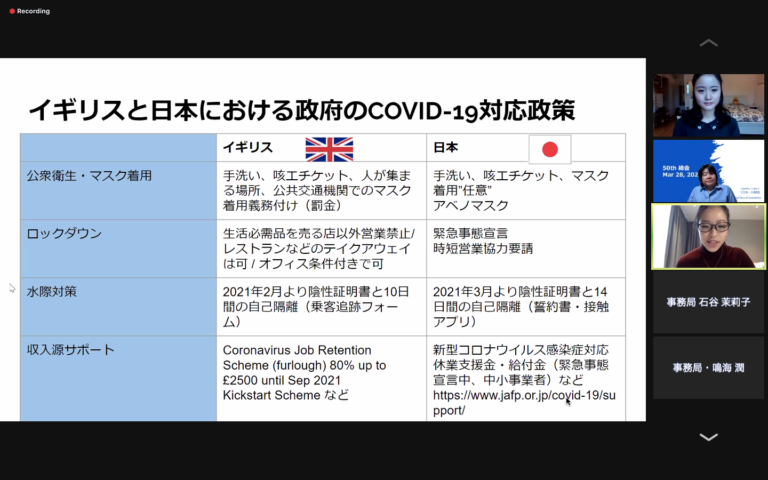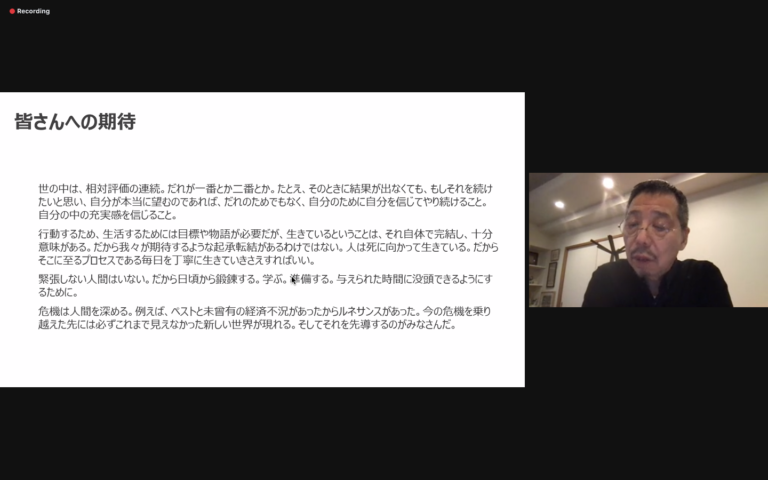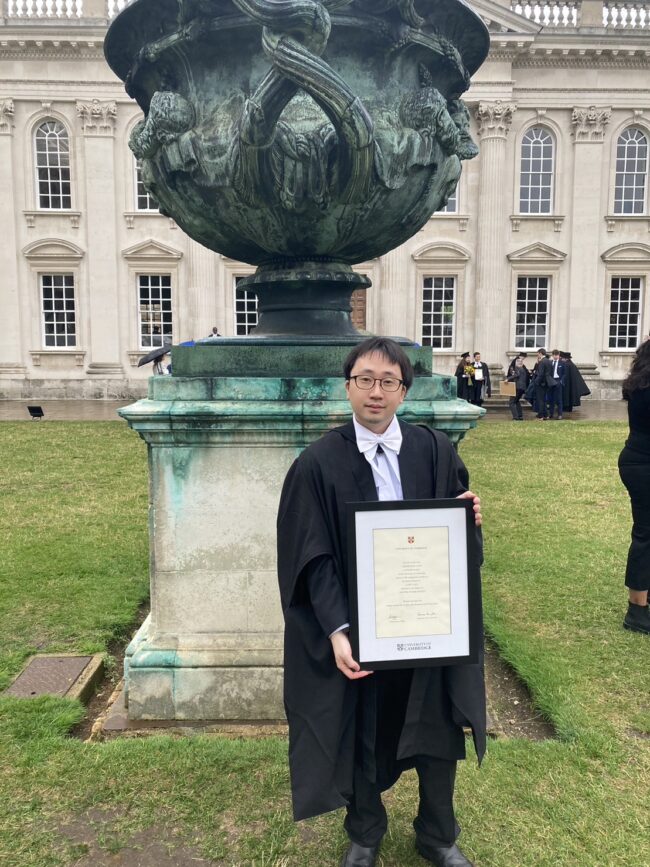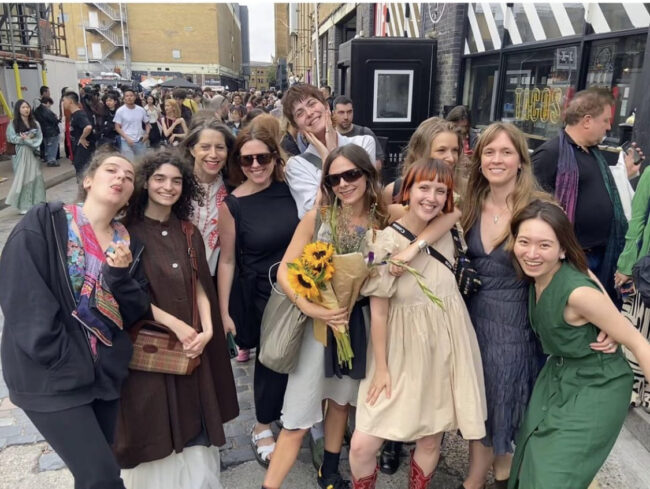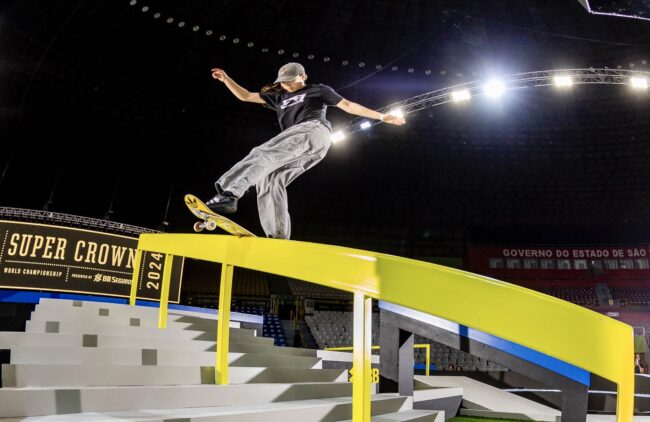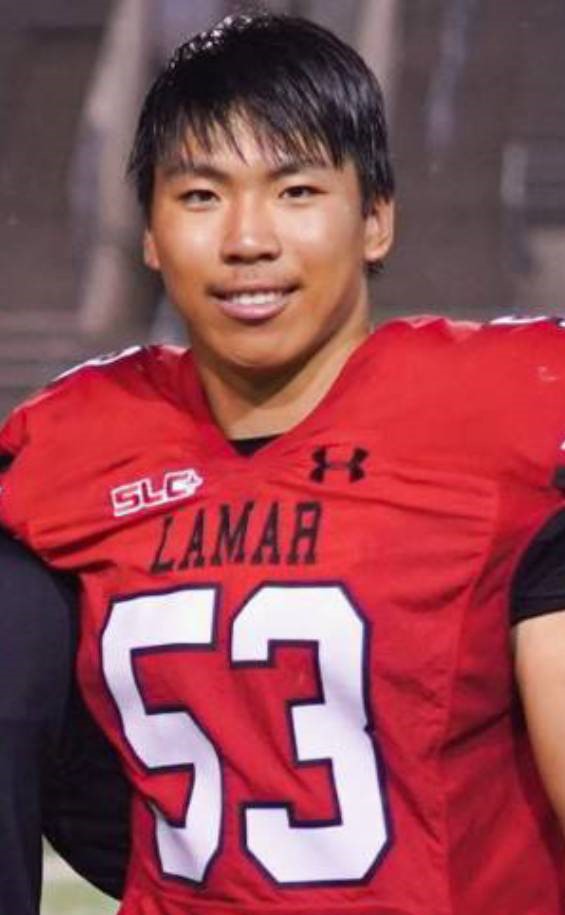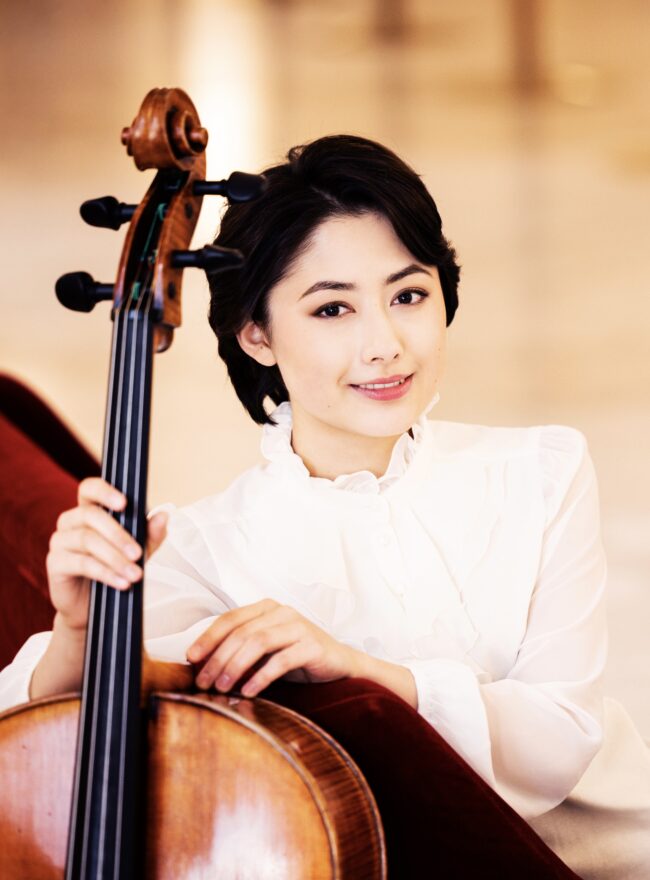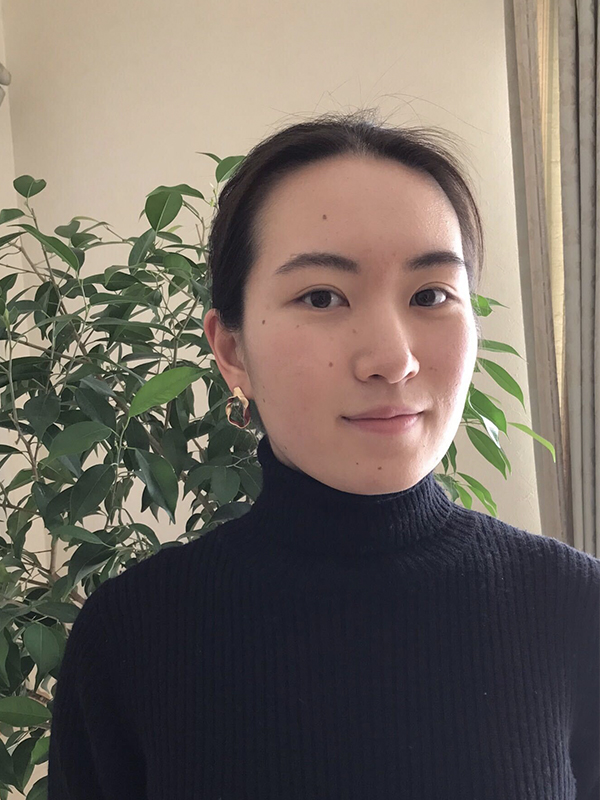Recruit Scholarship was founded in 1971 to support young people in Japan who “show leadership, are eager to learn and might achieve something big in the future.” With 10 recipients in the first year, the scholarship has expanded its target from college students to those in grad schools, athletes, artists and musicians. It has backed nearly 700 scholars over the 50 years.
Today, Recruit Scholarship has 76 beneficiaries, the biggest in its history. More than half of them are students and science researchers who attend schools overseas.
On March 28, the scholarship donor, the Ezoe Memorial Recruit Foundation held its 50th annual gathering online. Here’s a take from the perspective of one of the scholarship graduates of this year.
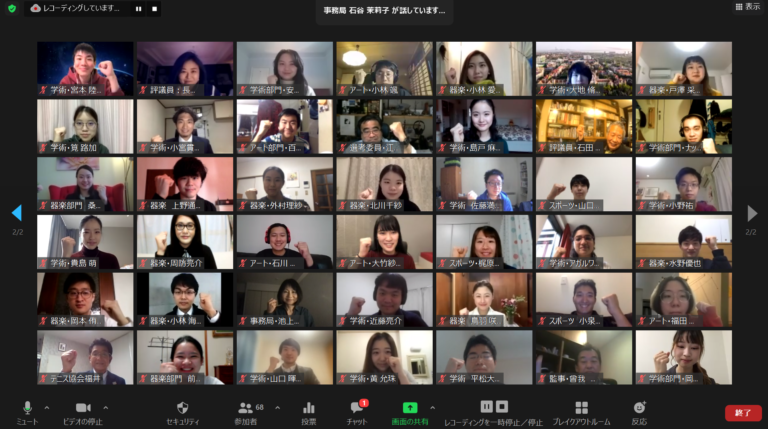
The annual event took place on Zoom as did last year due to the pandemic. Fifty four scholars gathered online this time, mainly from Japan and Europe where the local time zones fell on daytime.
The meeting began with self-introduction of 13 new scholarship recipients, followed by the current scholars’ presentation. The (virtual) mic was handed to Moe Kishima and Masako Shimato, both study at the University College London Medical School.
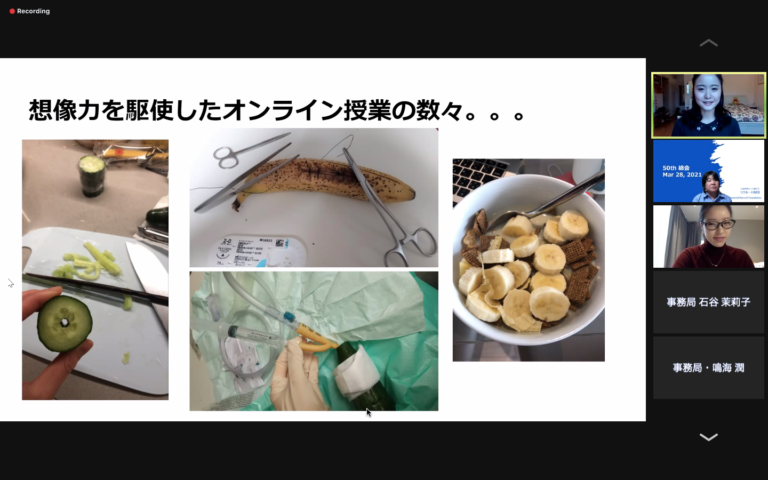
Kishima pointed out the difference between the UK’s “gatekeeper”-type and Japan’s “free access”-type healthcare systems. In the UK, “medical professionals and key workers were generally praised as heroes,” yet “many in the public appear to be confused by capricious rules and tired of prolonged lockdowns these days,” she said.
Shimato, who started clinical training during the pandemic, stressed the roles she and fellow medical students in the UK played in and out of hospitals, including support for essential workers.
The presentation from the frontlines of medical study and the pandemic handling prompted several participants to ask questions.
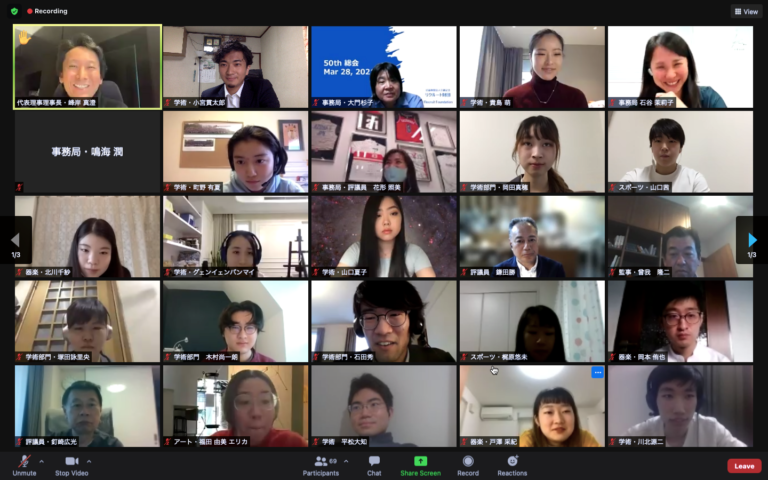
After a brief break, Yuji Akimoto, Director of Nerima Art Museum and a Recruit Scholarship selection committee member for the Art division, gave a special lecture for the participants.
Akimoto began his lecture with the definition of “what is modern art.” According to him, there are two themes the modern art addresses: the question for the “world” that surrounds one, and the inquiry into one’s self or “human.”
Akimoto thinks that the current, efficient-oriented system of economy is basically incompatible with human-centered art. Yet, citing his experience of running art projects with companies, he also said: “I think art has a power to make one reflect and reconsider one’s environments. That’s said, for those who are successful and well-suited to their environments, art might not be so necessary. However, by contrast, for those who are in the top management of businesses or CEOs, those who are in direct contact with society and must build something from scratch — for these people, art might rather be a familiar thing.”
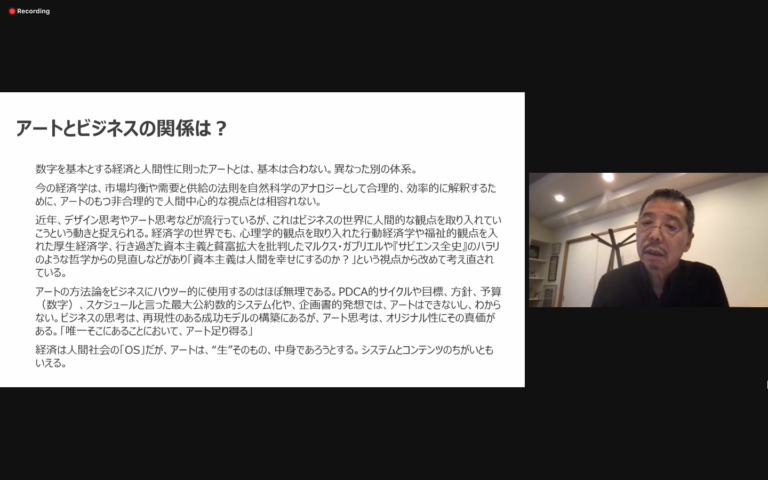
The lecture then focuses on what an artist is like. According to Akimoto, an artist is a person who is uninterested in the currents of the society and persists in accomplishing one’s belief. For example, he talked about the lives of Yayoi Kusama and Pablo Picasso.
Akimoto then gave a closing message for the scholars: “I was actually cheered up listening to your stories today. Going forward, you may receive criticisms like ‘young people today are ….’ or something, but this is a cliché said at any time in history. So I just hope you think this is your time, and live as much as you like.”
This year, five scholars graduated from this scholarship program. One of the graduates, Tomoki Sakata, the pianist and music division scholar, appeared on a video letter. Expressing gratitude for the foundation’s support for the past seven years, Sakata played a self-composed piece titled “Un sogno ~ Improvisation on Furusato“
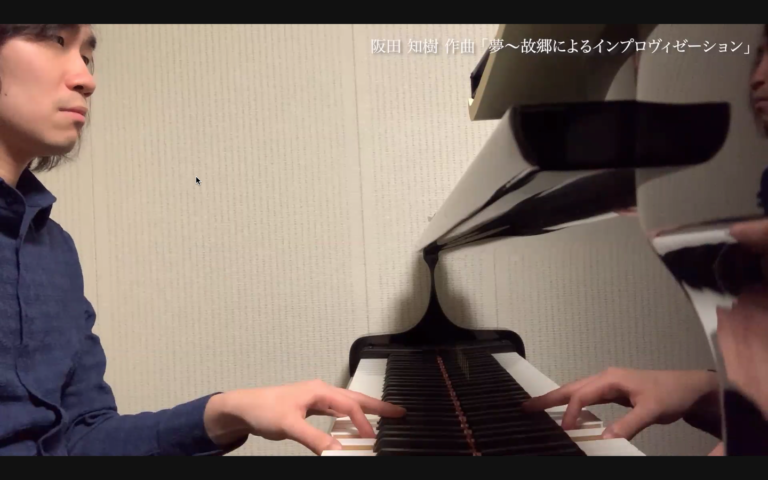
At the annual event, the foundation’s staff, board of directors and selection committee members joined the scholars on Zoom. Vice president The managing director Hiroaki Tsuru wrote in a message that “I am delighted that we are connected to each other at this moment in whatever form” and “now, more than any time before, let’s keep it up with strong belief and high goals every day.”
Masumi Minegishi, who chairs the foundation’s board, gave a closing speech. Referring to the progress in industrial response to the pandemic, he said: “The past year has highlighted that activities like sports, art, music and academic research are essential for people’s quality of life. … We the foundation want you to focus on what you can and should do now. We’d like to support you all here.”
Besides main programs, scholars were encouraged to mingle during the event, at a group work session (where small groups gave pitches on “people who influenced me”) and an avatar-based online chat space proposed by Yurie Suzuki of the art division.
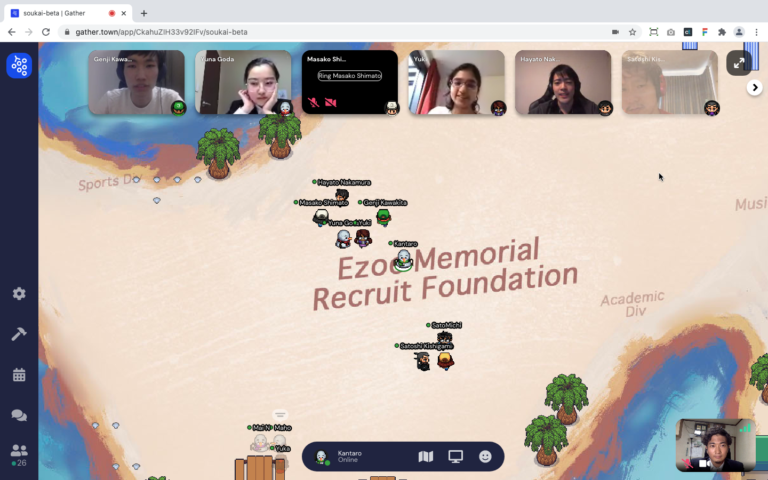
The founder of Recruit Scholarship, Hiromasa Ezoe, established this program as “a scholarship that no one has ever done” and created epoch-making terms at that time, e.g., making it repayment-free and removing post-graduation career clauses. Among others, he cherished the interaction within scholars — while alive he even invited scholars to ski tours and classical concerts himself.
Today, as calls for staying home never subside, mingling in-person is effectively impossible. Even before that, many students have been inundated with the reality brought by the sudden crisis. My utmost hope is to see the day when, after the pandemic, scholars shining at various fields worldwide come together and make sparkling chemical reactions happen.

